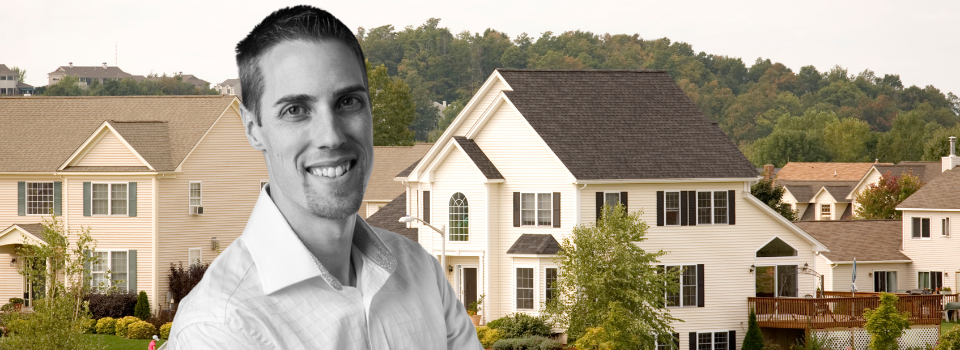A key part of investing is predicting the trends of the market and making well-informed choices.
If you are already an investor or considering diving into wholesaling, flipping, short-term rentals or multifamily properties, you want to read this!
The pandemic has changed the economy in an undeniable way. How will this continue to play out for the real estate market in the coming years? Jason and Pili of Multifamily Live invited Christopher Calandra on their show to discuss market predictions for the next few years.
Christopher Calandra is the perfect expert to connect the dots. He has been involved in Real Estate Investing for over 27 years and is the founder and principal of Elliott Wealth Management Services, LLC. Chris is also the host of the Simply Financial podcast. He bought his first investment property at the age of 23. His experience includes new home construction, flipping, residential income properties, commercial income properties, and creative financing. His current portfolio includes single-family, multi-family, and commercial income-producing properties. His proficiencies include investing, remodeling, maintenance, and reselling.
Chris breaks down predictions based on past and present data trends in the market, and identifies four key factors driving the real estate market, the bull market and residential real estate.
1. Money Supply
If you laid out four $1 bills in front of you right now, one of those $4 bills did not exist a year ago. The federal government's response to this pandemic and the economic shutdown, has been to pump a lot of money into the system. Where is this money going to go? A lot of money is making its way into the real estate market and this raises important questions to ask yourself as an investor.
What does this mean for the current and future market?
Where does the average person go when this money really stops?
What is the long term effect of bringing in so much more money?
A repercussion of pumping an unprecedented amount of money into the system is inflation. We, as a country, have not seen noticeable inflation in a very long time. We've been in a long term stretch where interest rates have been declining. When you are dealing with inflation and looking at construction prices, timber, etc., there is a rise in price and a shortage of goods. There is too much money chasing too few goods. This may affect the average American by creating a greater drive for Americans to get their financial house in order, accumulate wealth, and solidify an early retirement. This can push the market towards investing in real estate if other key factors align which takes us to #2.
2. Low Interest Rates
When acquiring property, interest rates are a key factor. Currently we are basically in a 0% interest rate environment; borrowing costs are very low. Will this stick? Key people in government financial departments have stated numerous times they anticipate leaving interest rates where they are until 2023. This creates a highly favorable environment for borrowers. When paired with some of the other factors this ‘cheap money,’ which can be used to leverage investment returns in vehicles such as real estate, is part of what's driving this real estate market.
Combined with the drive for financial security and the advantage of using ‘cheap money’ to lock in investments and security, we have and may continue to see an increase in the demand for real estate.
3. The Stay at Home Economy
There is renewed appreciation for one's home, because a lot of us have spent more time at home. With that in mind people want bigger homes and to upgrade and improve what they have. This is helping to drive the real estate market both in sales activity but also in value, because a lot of money is being reinvested into people's homes.
A lot of the trends in the pandemic existed before, but are now accelerated because people have both the time and the money to upgrade quickly. We see commitments to improvements that people were saying they didn't have time for, or just taking for granted. With the increase in the importance of the home, we've seen the trickle down effects and trends in the supply and demand of industries necessary to make these upgrades.
Based on this factor, how will housing prices and supply trend in the future?
4. Housing Inventory
This is classic economics, supply and demand, and there's a decent amount of people out there wanting to buy, and not a lot of people wanting to sell. There's a shortage.
Based on research this is actually not only a pandemic related problem, but one that has been building for years. Since the Great Recession, we haven't created a lot of new inventory in this country. So what we're experiencing is not just needing more people to sell to get back to market equilibrium, we have to catch up for a shortage of supply because we haven’t hit the 1.5 million new homes necessary to meet demand since 2006. We already had a shortage and the pandemic just heightened the limited supply.
This brings us to current factors influencing the construction of new houses to meet demand. For contractors there are unpredictable costs due to supply chain issues. To protect themselves, they're trying to slow roll themselves into contracts or back themselves out. They are trying to balance creating a profit margin when their costs to build might increase up to 70% as they are building. So not only are supplies more expensive in the building process, at certain choke points, you may not even be able to get what you need. If as a contractor or flipper you can't get what you need when you need it, it slows down the whole process, and that ruins margins.
The impact of this is builders are increasingly cautious about rushing headlong into this bull market because of the lack of visibility on the cost side of their ledger. Now carrying costs are increasing because of understandable caution and unpredictable costs slowing building timelines.
What does this mean for the market?
Most people are eager to buy which is why we see the heightened supply issue. However, people may say I don't want to enter into the market and buy a home now or upgrade my home, because prices are out of control. The underlying assumption with this thinking is that by waiting, you will get a better price later.
Based on analysis of these key factors you may not see a price decline, you may not see a quick fix to the shortage issue and therefore, you may not get a better opportunity to buy for a little while. If you are assuming it’s going to mirror the Great Recession, where you have a reset of residential or real estate prices generally, that isn’t necessarily going to occur. You may not be rewarded for waiting, but the flip side is with the housing prices, people are also buying recklessly with no appraisal, and no inspection contingencies.
What does this mean for you as an investor?
Problem solving for the supply issue is to see the potential in repurposing commercial properties because what used to work for retail and office space is not going to work moving forward. So there's going to be creative destruction around commercial real estate over the next stretch of time which presents a wonderful opportunity, but it's going to take a different skill set and a different eye towards creativity to prosper in real estate markets.
It's a great time to be a real estate investor moving forward AND you need to adapt to the new environment and plan and pivot accordingly.




















